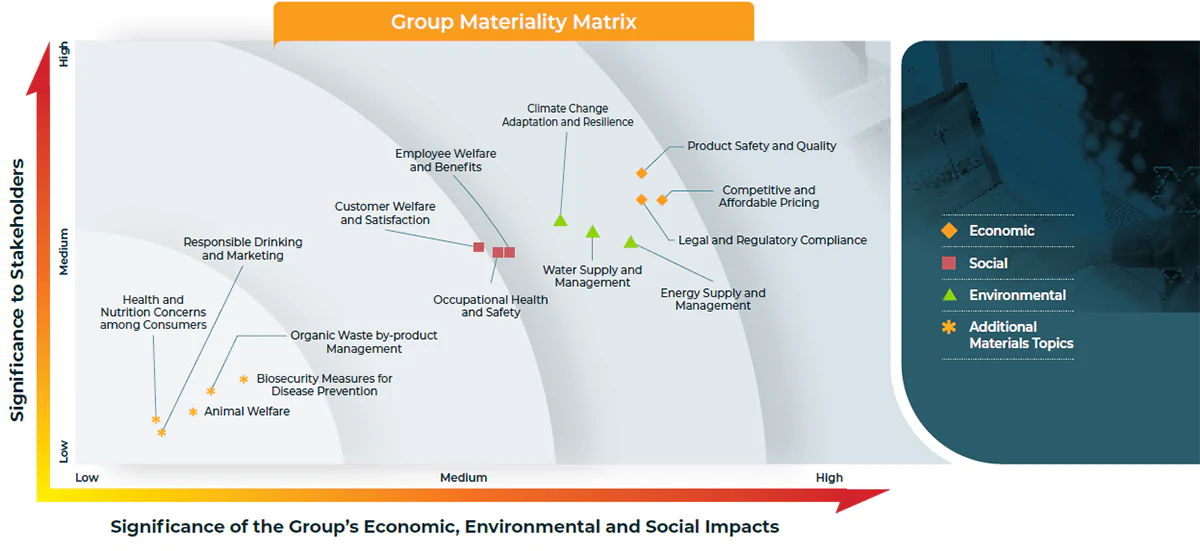SUSTAINABILITY MATERIALITY ASSESSMENT
Management Approach
The Group applies a collective approach in determining material issues across the business units. Material topics are considered for relevance based on our Group strategy, national context, organisational context and stakeholder engagement.
As a Group, a materiality assessment is conducted annually to determine economic, environmental, social, and governance issues specific and material to our operations. The process focuses on double materiality which considers both the financial risk to the Group and the external impact to stakeholders.
The material topics are managed based on the Group’s overall policies, goals and objectives. Targets are set, and management systems are used to measure, monitor and report performance accordingly. The Group develops and implements remediation measures and management activities as appropriate.
The most material issues shape our sustainability strategy and guides our reporting. Updates are provided to stakeholders through the annual report, business communications and press releases.

Nutrimaster Fertiliser in use at
a tobacco field in Headlands
Materiality Process
The assessment is a multi-stage process which starts at the business unit level and is undertaken over four stages.

The assessment is based on a wide range of sources, including management workshops, internal assessments, compliance reviews and stakeholder engagement. All business units and divisions within the Group are involved in the process where they are responsible for submitting their material topics to the Group for review and alignment. The process is overseen by the internal Sustainability Working Panel which reports into the the Audit and Risk Committee and to the Board.
Materiality Topics Matrix
During 2024, the following topics were identified as material to the Group and our stakeholders:

In addition, the Group highlighted key risks that are specific to a particular business but that do not necessarily apply throughout the Group, such as:
- Animal welfare and biosecurity measures for disease prevention
- Organic waste by-product management
- Health and nutrition concerns among consumers
- Customer health and safety; Management of controlled substances (hazardous materials handling, storage, distribution/ sale and disposal; chain of custody)
- Trade controls and importing regulations
- Packaging lifecycle management (post-consumer, end-of-life waste)
- Medical and pharmaceutical waste management
- Intellectual property protection and competitive behaviour
- Responsible drinking and marketing

